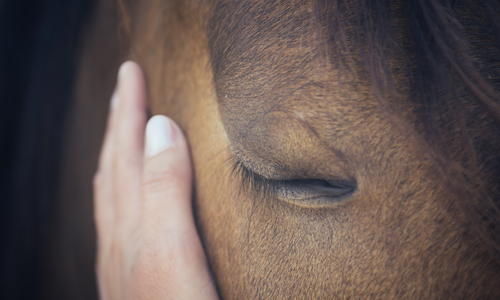
How You Can Help Your Anxious Horse
Anxiety is a common problem in horses. Some startle easy and constantly seem on edge, while other horses only experience anxiety in certain situations. Whether anxiety is an infrequent or constant issue, these six tips can help you calm your anxious horse.
Ask the Equine Veterinarian to Pay a Visit to Your Stable
Anxiety, particularly if it starts suddenly, may be related to a health ailment. Sores, lameness, decayed teeth, arthritis, stomach ulcers, arthritis, tendon injuries, and other health issues may be to blame for equine anxiety. Painful conditions can worsen slowly, eventually causing considerable pain. Despite the discomfort, your horse may carry on as usual and show no outward signs of a problem.
Worsening vision may also be a factor in anxiety. Your horse may become understandably skittish if it can't see obstacles clearly or if it's unable to see people or animals until they're much too close.
If your horse has suddenly become jumpy, it's a good idea to rule out health conditions or poor vision as the first step in treating anxiety.
Use the Buddy System
As herd animals, horses prefer to live, work, and play with other horses. The herd provides a sense of safety and stability while also offering plenty of opportunities for socialization. When horses don't have the support of a herd, they may become anxious or depressed.
If separation anxiety seems to be your horse's problem, consider moving grooming, training, and other chores outdoor to the pasture. Horses that have separation anxiety may feel calmer if they can remain with the herd as much as possible. As your horse becomes more comfortable and confident, gradually increase its distance from other horses during training or grooming sessions.
Avoid Sudden Changes to the Routine
Like people, horses become accustomed to following a particular schedule and may become anxious if their routine changes. If possible, feed, turn out, and groom your horses at the same time every day. When changes are unavoidable, introduce them gradually.
If you need to move your horse to a newly built stable on your property, make an introductory visit a day or two before the move. The visit will give your horse time to get used to the sight and smells of its new home before actually moving. Give new horses plenty of time to adjust to their surroundings before training or riding them.
Evaluate Your Tack
Sometimes anxiety can be traced to simple discomfort. If a saddle, girth, or bit pinches or no longer fit comfortably, your horse may be reluctant to be ridden or even led.
Fit problems aren't always obvious. An uneven sweat pattern on the underside of a saddle can be one sign of a fit issue. If you're not sure how to evaluate a proper fit, it's a good idea to bring in a saddle fitter.
An experienced fitter can recommend good tack options based on your horse's body type and rider preferences. The Horse recommends working with a veterinarian, farrier in addition to a saddle fitter, as hoof issues and anatomical problems could affect your horse's gait and cause the saddle to shift.
Apply Aids Consistently
Your horse may become anxious if you're not consistent in the way you use aids. The pressure of your leg or the bit gives your horse important information about what to do next. If you don't use the same amount of pressure all of the time or don't release pressure promptly after your horse responds to a command, your horse may become confused and unsure.
If you think this might be the issue, a few retraining sessions for you and your horse may be helpful. Professional trainers can help you spot subtle problems that may be contributing to your horse's inability to decipher the meaning of aids.
Give Your Horse More Time to Exercise
Does your horse spend much of the day confined to a stall or tiny pasture? Without enough exercise, your horse may become bored and anxious. Long rides or access to large pastures can help burn off excess energy and reduce anxiety.
Is your horse struggling with anxiety? We can help you determine the cause and offer a few suggestions. Contact our office to schedule a visit to your stable.
Sources:
The Horse: My Saddle Doesn't Fit My Horse...Now What?, 6/27/18
Your Horse Magazine: Separation Anxiety in Horses, 9/14/16
